Speakers: Chris Hicken, CEO of ’nuffsaid, You Mon Tsang, CEO of ChurnZero, and Alex Raymond, CEO of Kapta
 |
 |
 |
We had the pleasure of hosting a CEO panel on Customer Success Unlocked to discuss the economy and what we in Customer Success can and should be doing about its impacts to the business world. Our panel’s thoughtful answers to the audience’s hard-hitting questions are outlined below. |
Q: Is CS fully leveraging its “seat at the table” by tying revenue and growth? Or, if a CFO needs to make cuts, how presumptive will they be about seeking cuts from CS?
Chris Hicken (CH): The way that I would coach CS people to talk to their CFOs is to start by looking at the unit economics of the business. Unfortunately, we don’t have time to go into a lot of detail about what I mean by that, but here’s the high level: the CFO needs to be looking at, for every dollar that the company makes, how much money did the company spend to build the product? How much money did it make? What percentage of revenue is spent on retaining the customer? What percentage of revenue was spent on acquiring the customer? And if you look at all those as kind of different unit economics of the business, what you’ll see is that, okay, if growth rate is inevitably going to slow, and if the cost to retain customers is going to remain fixed, then the only intelligent choice to make is to scale back on your sales investment to make sure that you don’t blow your cost to acquire customers out of the water, and instead keep the cost to retain customers fixed, because that’s the investment that will allow the company to preserve its most valuable revenue. It’s the most predictable revenue. I’d like to have a whole talk where we go into this, but that’s the high level strategy I would take with the CFO proactively right now, before they make any of these decisions about cuts they’re going to make.
Alex Raymond (AR): In my experience, Chris, to add to that, I would say, CFOs understand the unit economics, they understand the dynamics. They’re typically more of an ally of the CS team than others, including potentially the CEO, or even the CRO, who don’t [always] understand the margin dynamics. The fact that existing customers are way more profitable than new customers, they’re more likely to be upsold and [be] more referenceable. There’s so many positive dynamics to that. And so, I actually see the CFOs often being more of an ally or potential ally than an enemy. The CS leader or Account Management leader needs to figure out the language to speak with this person to get what they’re looking for.
You Mon Tsang (YT): I think you’re absolutely right. The CFO is your ally. They knew about before you knew about NRR. And you know the conversations you can have with the CFO, I think, will be high bandwidth. Now to your point, to your question – will they be presumptive about making cuts? Absolutely. They’re going to be presumptive about making cuts. They’re going to do the math on where cuts need to be made, and whether CS is first on the list or last on the list will probably depend on how well you’re doing and how overstaffed you are. I think it’s hard to sort of put a blanket on that, and I mean CFOs are going to try to do the model, and if they do work well, they’ll say, “Yeah, you know you’re under capacity, so you have to get to capacity, or we’re going to get rid of some folks.” Or you could sit down and have the conversation that if you’re asking me to do more with less, [then point to] this is what the NRR And GRR is going to go to, and then this is the resulting return on lack of investment. Right? So, I think those conversations have to be had. You should expect your CFO to ask for a pound of flesh, they will ask for it.
Q: Customer Success in general is known to be very “nice.” I know that serves them well with customers, teams, and in the CS community, but are they “too nice” with their C-suite peers, so they get overshadowed or elbowed aside by stronger personalities?
CH: Nice people also add value. I think the difference between Success and Support is great Success people love to drive value through the relationship, right? It’s not a transactional thing. It’s like I want to add value to my direct customer, Mary, and I want her to get the most out of her experience. And so, with that mindset you can be both nice and ensure that Mary is getting value. So, I think there, you know if you’re just nice, maybe you should be in Support, frankly. If you’re nice and you’re helping to drive value, then you’re a great candidate for Customer Success.
YT: And if I think about all the great Sales folks that I’ve worked in the past, nice is a word I would use to describe all of them. I describe all of them as nice. They may be different in other ways, right? Driven in different ways, but nice is certainly an adjective I would place on every single one of them.
Q: Any advice for CS leaders as they’re talking about churn to their leadership teams? I want to take accountability where we can, and show ownership of what we can do better, but honestly a lot of the churn is because customer budgets got cut… not a lot we can control there.
AR: I’m going to continue the thought that I had earlier, which is, the number one job of the team is to be close to customers, and that will help you understand the customer dynamics. It will help you understand what’s going on in their world, what they like, dislike, and so on. It will also, very importantly, help you to understand what their desired outcomes are, or, to put it another way, how do they see value in what we’re doing? And when we can understand value, what it means to them, then we can go back internally to Product, to Marketing, to the CFO, etc. We can say, “Hey, here’s what the customer is thinking about. Here’s what they’re talking about. Here’s where they’re doing,” and that’s going to give us a leg up whether we’re in a recession or not. Getting close to the customer, really understanding them. The reason why is, all of our Sales motions, our CS motions, so many of these things are internally focused, they’re self-centered. And if we really want to crack the nut of being customer-centric, we have to go out there and spend as much time as we can with the customer and document what we’re learning and share that internally. Being an . So, I think if you get in that position, you’re truly indispensable as the CS leader, or as a CSM.
YT: So, if you’re a CS leader, you’re probably already good at working with customers. I’m going to make that assumption, and that you want to be a CCO at some point. So, for those of you who are on that path, I say you have to embrace the commercial part of CS and the operational part of CS. Those are two different parts of CS. You want to be a full stack CS leader, right? You want to be able to show that you can make customers happy, that you understand the commercial aspects of CS, and that you also know how to operationalize CS, which is, by the way, probably the newest part of CS, as you know. How do we make CS a high functioning, the best functioning organization in the company? And of course, Ops is a big part of that, so I would say, you know, if you haven’t already done so, embrace the commercial part and embrace operations.
CH: I’ve been advocating for CS leaders to have more influential roles on the executive team for a long time. Partially it’s because I’ve always been a customer obsessed leader, I’ve always wanted my customer leaders to be stronger voices at the table, I’ve wanted customer feedback to be present in decision-making. The way my brain has meandered over time is, you know, we’ve been talking about this concept of customer-led growth for a while. But it’s kind of evolved to the next step, which is, I think, potentially the most valuable role that the customer leader can play on the team, is to own product market fit for the business.
No one on the executive team except for the CEO owns product market fit. And when I say product market fit, what I mean is, there are moments of value delivery across the entire customer journey. Right? Is Product doing a good job, delivering impactful features that are easy to use? Is Engineering building a stable, reliable product? Is Sales acquiring the ICP and setting expectations correctly? Is Marketing delivering high value content and effective pricing? Is Professional Services offering high quality, trustworthy, consulting services. Right? It goes on and on. Customer Success actually doesn’t own most of the touchpoints that deliver value to customers, but they are the closest ones to the customer. They’re actually the only executive that can scan that entire journey and report back to the executive team where the business is accumulating risk and product market fit, and where it’s accumulating opportunities for growth and expansion.
So, a lot of that thinking, I’m just going to give a little plug here. We just published a new magazine called Product Market Fit. We published a super popular magazine for Customer Success leaders, the newest version literally hot off the presses, I got it yesterday afternoon. Marley’s chapter is chapter number eight on Digital CS, and we had 40+ people from the community help write this magazine. But the short story is, I think the path to the to the CS leader not only being an important member of the team, but maybe the most important member of the team, is by helping to give the company visibility for the first time ever into the company’s overall product market fit. And, by the way, I’ve pitched this idea to a lot of investors, and they are all over it. So, if you can be the executive that gives investors this kind of information at the board meeting, you’re suddenly the most important part of the board meeting every three months.
Watch the recording of this webinar to catch up on the full conversation!

